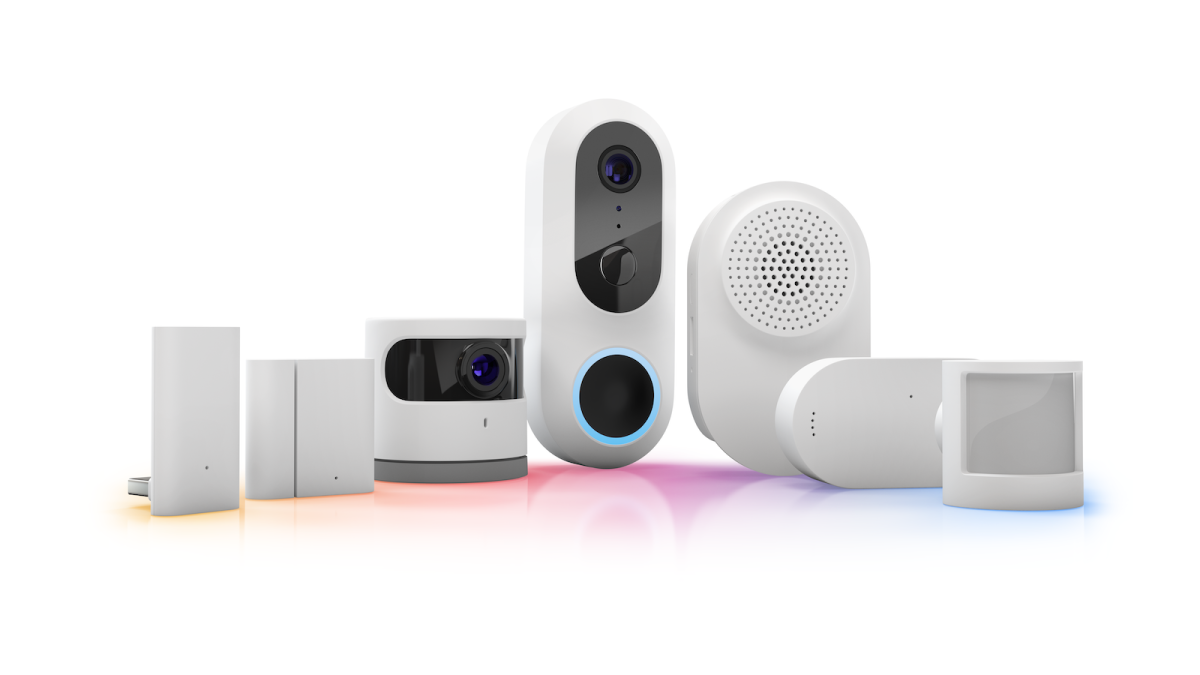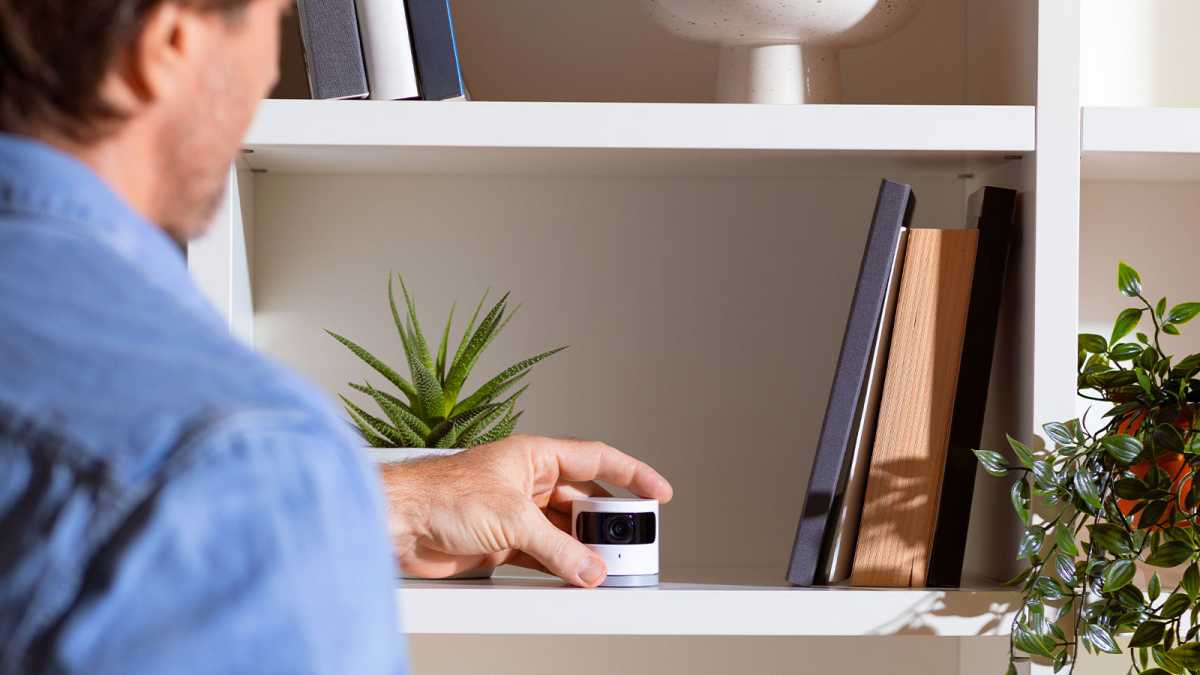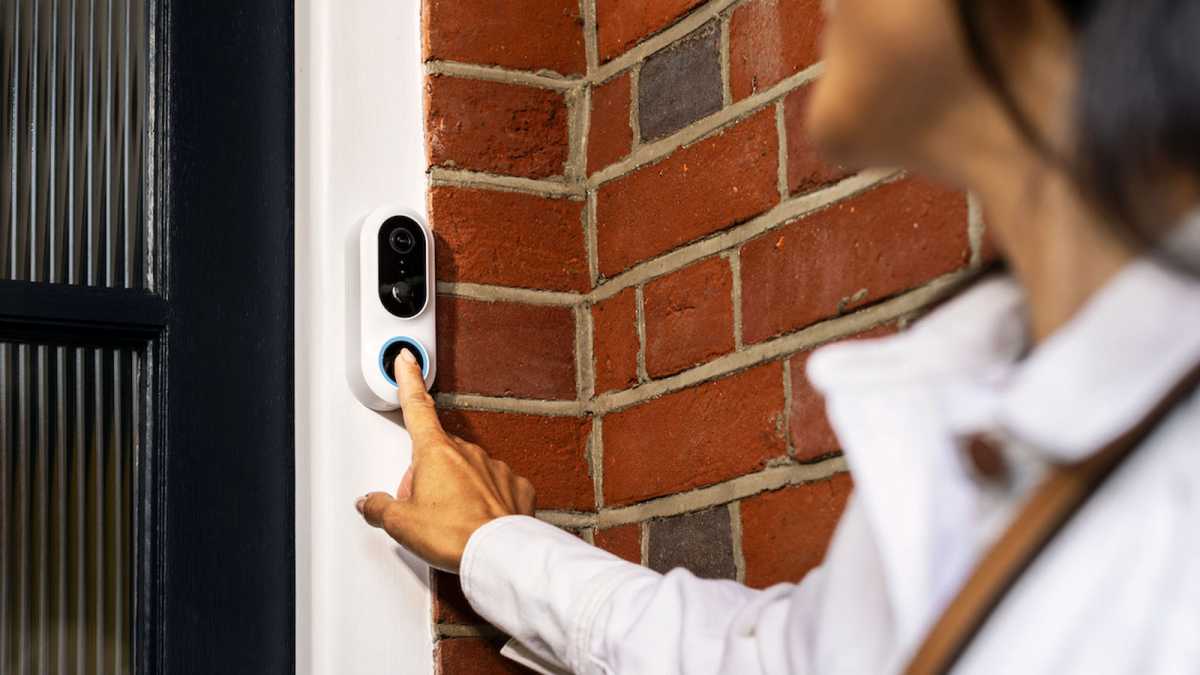Today, Sky is launching its new product, Sky Protect Smart Home Insurance, a comprehensive, 5-star Defaqto home insurance policy underwritten by Zurich.
Prospective customers can register on Sky.com, via the MySky app or by phone.
The catch is that when customers sign up, they’ll receive a smart home kit that includes a smart doorbell and chime, indoor camera, door sensor, window sensor, and a motion sensor and sensor. leak. Sky prices the kit at £250.
Is the Sky Protect smart home kit any good?
Sky’s smart home devices are white label products, manufactured by Hualai, a Chinese smart technology company. Sky has made it clear that customer data will remain securely encrypted in the UK.
We haven’t had a chance to test the kit yet, but we’ve seen it in action, and we think it’s a decent mid-range set with some good features – we particularly like the fact that customers get 30 days free cloud storage for video.

Sky
But it has some pretty serious limitations, the main one being that Sky devices can’t talk to other smart home devices that customers might own or buy in the future. More seriously, given the popularity of voice assistants, the Sky configuration cannot be used with Alexa, Siri or Google Assistant. It doesn’t even integrate with Sky Glass.
Sky has his reasons for this. The fundamental is the desire to keep things simple. The entire Sky Protect package has been designed to be easy to use, from registration (customers will only need to answer 11 questions to get their policy up and running) to setting up smart home devices.
This really is a starter kit for people who are not confident about buying smart home products.
But who can blame them? The smart home industry knows full well that potential buyers are put off by devices that seem confusing or difficult to use, or by not knowing what works with what.

Sky
Sky has come up with a solution traditionally favored by smart home brands: it has created another set of easy-to-use products that won’t work with anything else, further fragmenting the market.
But there’s no way Sky has yet been able to make its products universally compatible. Matter, the smart home protocol set up to address these issues, is at an early stage: it has only rolled out a certification process for certain types of smart home devices. Smart doorbells are not yet on the list.
Still, we would have liked to see Sky’s kit work alongside a few other key products, although that would have meant Sky would have had to make some choices about which products and brands it would be.
The other issue with the smart home kit is that users won’t be able to add any. It’s been designed for ‘the average UK home’, but if your home is larger you won’t be able to ask for more door or window sensors, making it unnecessary for some.
The package is fully linked through the Sky Protect app, which works – as you’d expect – like any other smart home app. Customers can view their camera feed while away, receive alerts from their smart home devices, and chat with visitors who ring their smart doorbell.

Sky
But they will also be able to access the app to check their insurance policy information and, if something goes wrong, start a claim and get in touch 24/7 with a licensed tradesperson to book repairs. emergency.
The idea is that this integrated service will help people monitor their homes more closely, leading to fewer complaints. Everyone wins. Or at least, that’s the thought.
The risks of linking smart devices and insurance
We can’t be the only ones uncomfortable with the precedent of linking these kinds of smart devices (which are essentially specialized data collection tools) and insurance.
What we like about Sky’s offering is that smart home devices and the data they collect have no direct bearing on the insurance policy. In other words, while customers can choose to share data with Zurich to support their claims, it doesn’t work the other way around.
Customers can submit doorbell or interior camera footage of a break-in to the insurer – if they wish. But Sky assured us that, under the terms of the contract, Zurich cannot refuse to honor a claim if the crime footage is not captured or if a property owner is unwilling to hand it over. Nor could it penalize a homeowner whose house is flooded for not using their leak detec tor.

Sky
But if Sky’s service takes off and the link between smart technology and insurance is cemented, it’s hard to imagine an insurer who wouldn’t want access to this kind of personal data, whether it’s health of users or the home.
Sky isn’t the first brand to tie insurance to a smart device. Health insurer Vitality offers its customers an Apple Watch with their coverage. Unlike Sky’s free smart home kit, it’s just offered with an upfront discount.
Vitality doesn’t just provide the Apple Watch for customers to monitor their own health and fitness. Device data is shared with Vitality itself. If the user achieves their fitness goals, they won’t have to make any further payments on the watch. But if they can’t stay active, they will.
In this case, the smart device doesn’t just inspire customers to take better care of themselves. It also tracks their personal details and penalizes them if they fail to achieve their goals.
While that’s not the case with Sky’s service, in this case at least customers who embrace the idea of getting something extra with their insurance policy can give up something much more valuable in return. .
If this compromise is normalized in the insurance industry in the same way it has been for social media platforms, it is not a stretch to imagine a time when accepting surveillance will be a necessary part of get insurance.
How much will Sky Protect Smart Home insurance cost?
The price of the insurance package will vary depending on a person’s risk profile and the size and type of home they wish to insure.
Customers will then pay a fixed price for 24 months. Existing customers of any Sky service (Sky TV, Glass or Q and broadband services) will get a discount of £5 per month when taking out the policy.
Customers can cancel within 31 days, return the smart home kit and pay nothing. After that, they can cancel at any time and will be able to keep the kit, although its smart functionality is limited.
Find out more on Sky.








